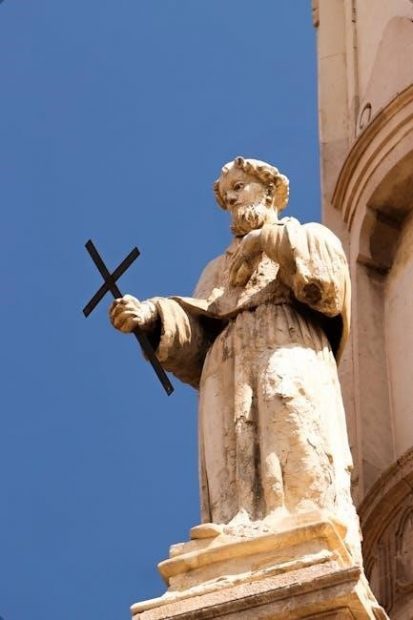Catholic Last Rites are sacred traditions providing spiritual comfort through sacraments like Confession, Anointing, and Holy Communion, offering forgiveness and strength in preparation for death.
1.1 Definition and Purpose of the Last Rites
The Catholic Last Rites are a set of sacred sacraments and prayers administered to the dying, aiming to prepare their soul for eternal life. These rites are rooted in the belief that death is a transition to the afterlife, and they provide spiritual healing, forgiveness, and strength. The primary purpose is to reconcile the individual with God, ensuring they are in a state of grace before death. This includes confession of sins, anointing for spiritual and physical healing, and receiving Holy Communion as viaticum, or “food for the journey.” The rites also offer comfort to the family and loved ones, emphasizing hope in resurrection and eternal life.
The Last Rites are not merely a final ritual but a profound expression of Catholic faith, underscoring the Church’s belief in the sacraments’ power to sanctify and redeem. By administering these rites, the Church upholds its mission to care for the spiritual well-being of the faithful, even in their final moments.
1.2 Historical Context and Development
The Catholic Last Rites have a rich history tracing back to early Christian practices, where the Church emphasized spiritual preparation for death. Over centuries, these rites evolved, influenced by theological developments and liturgical reforms. The early Church emphasized prayer, fasting, and communal support for the dying. By the Middle Ages, the sacraments of Confession, Anointing, and Holy Communion became central, forming the core of the Last Rites. The Council of Trent (1545-1563) reaffirmed these practices, linking them to Catholic doctrine on sin, grace, and the afterlife. In the 20th century, liturgical reforms simplified and streamlined the rites, focusing on their pastoral and spiritual significance. Today, the Last Rites remain a vital expression of Catholic faith, offering hope and solace to the dying and their loved ones.
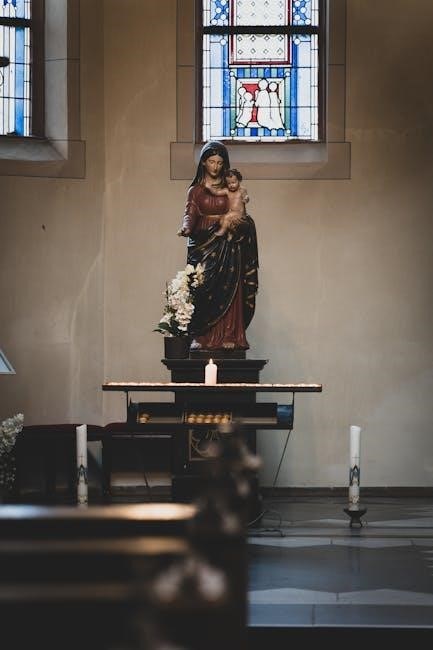
Key Components of the Last Rites
The Last Rites consist of three main sacraments: Confession, Anointing of the Sick, and Holy Communion (Viaticum). These rites provide spiritual cleansing, healing, and divine strength, preparing the soul for eternal life.
2.1 Sacrament of Confession (Reconciliation)
The Sacrament of Confession, or Reconciliation, is a vital part of the Last Rites, allowing the dying to seek forgiveness for their sins. Through this sacrament, individuals confess their unconfessed mortal sins to a priest, who absolves them in the name of Christ. This rite restores spiritual harmony and cleanses the soul, preparing it for eternal life. The Church emphasizes that Confession is not a judgment but an act of divine mercy. Even if a person cannot physically confess due to extreme illness, they can make an act of perfect contrition, expressing sincere sorrow for their sins. This sacrament brings peace and reassurance, reinforcing the believer’s trust in God’s forgiveness and love.
2.2 Sacrament of the Anointing of the Sick
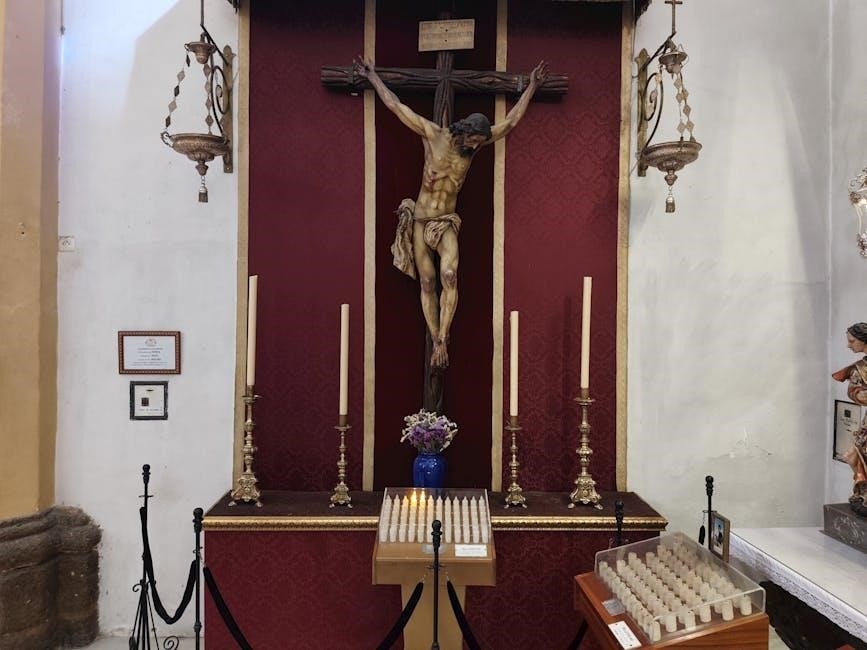
The Sacrament of the Anointing of the Sick is a sacred rite administered to those facing serious illness, injury, or old age. It is not limited to the dying but is intended to bring spiritual and physical healing. A priest anoints the person with blessed oil, praying for strength, forgiveness, and recovery. This sacrament cleanses the soul of venial sins and prepares it for eternal life, offering comfort and peace. While often associated with the Last Rites, it is also celebrated separately, emphasizing trust in God’s mercy and healing power. The Anointing of the Sick is a powerful expression of faith, providing solace to the afflicted and their loved ones during challenging times.
2.3 Sacrament of Holy Communion (Viaticum)
The Sacrament of Holy Communion, known as Viaticum, is the last sacrament administered to the dying. It is a profound expression of unity with Christ and the Church, offering spiritual nourishment for the final journey. The word “Viaticum” means “provisions for the journey,” symbolizing Christ’s presence in the soul as it prepares to meet God. This sacrament is a powerful source of grace, providing comfort, forgiveness, and peace. It is typically administered after Confession and Anointing of the Sick, completing the spiritual preparation for death. Viaticum strengthens the soul, reinforcing faith and hope in eternal life. It is a sacred moment of intimacy with Christ, entrusted to the care of the priest, who prays for the person’s safe passage into eternal rest.
The Rite of Committal and Funeral Rites
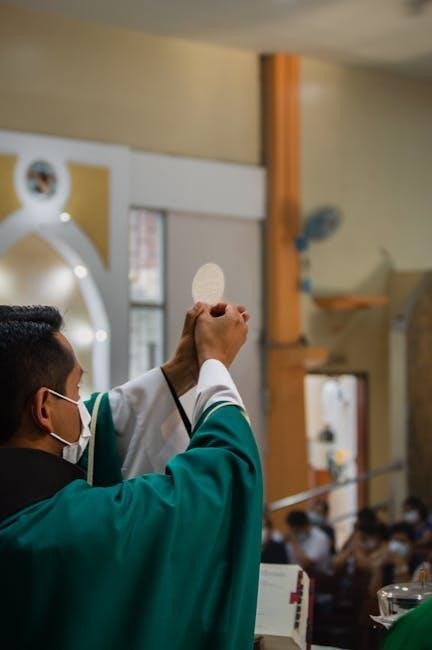
Catholic funeral rites include the Vigil Service, Funeral Liturgy, and Rite of Committal, honoring the deceased, comforting mourners, and expressing hope in the resurrection.
3.1 The Vigil Service (Wake)
The Vigil Service, often referred to as the Wake, is the first part of Catholic funeral rites, typically held at the hospital, residence, or funeral home. This service provides an opportunity for family and friends to gather, pray, and offer condolences. The priest leads prayers, often including the Rosary, to comfort the grieving and seek forgiveness for the deceased’s sins. The Vigil emphasizes hope in the resurrection and eternal life, aligning with Catholic teachings. It may include readings from Scripture and reflections on the deceased’s life, fostering a sense of community and support. The service is a time for shared memories and spiritual solace, preparing all for the subsequent Funeral Liturgy and Rite of Committal.
3.2 The Funeral Liturgy
The Funeral Liturgy, also known as the Mass of Christian Burial, is the central ceremony honoring the deceased. It is typically celebrated in a church, where family, friends, and the community gather to pray for the soul of the departed. The liturgy includes readings from Scripture, hymns, and a homily, emphasizing hope in the resurrection. The Eucharist is a key component, offering spiritual nourishment and uniting the faithful in prayer. The liturgy concludes with the Final Commendation, where the priest commends the deceased to God’s mercy. This sacred ritual provides comfort to the grieving while celebrating the deceased’s life and their union with Christ in eternal life, reflecting Catholic beliefs in the transformative power of death and eternal salvation.
3.3 The Rite of Committal (Burial or Interment)
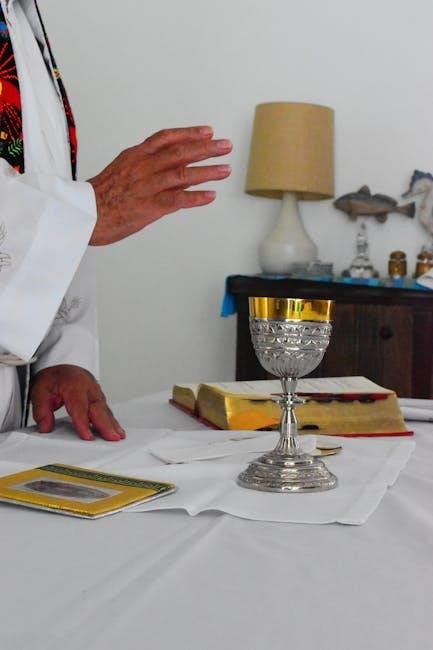
The Rite of Committal is the final step in Catholic funeral rites, typically conducted at the gravesite or mausoleum. Led by a priest, deacon, or lay minister, it involves prayers and blessings to commend the deceased to God’s care. The committal prayer emphasizes the belief in eternal life and resurrection, offering comfort to mourners. The phrase “Ashes to ashes, dust to dust” is often used, symbolizing the return of the body to creation. This rite is a solemn yet hopeful conclusion to the funeral process, reaffirming faith in God’s promise of eternal life. It serves as a final act of farewell, uniting the deceased with the broader Catholic community in prayer and remembrance, while also providing closure for those grieving.
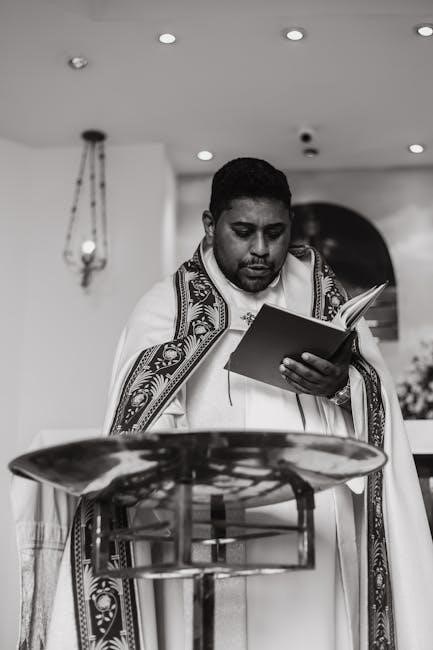
The Apostolic Pardon and Final Blessing
The Apostolic Pardon is a final blessing imparted by a priest, offering forgiveness and divine mercy. It is a powerful prayer for the dying, granting spiritual comfort and assurance of God’s grace, often accompanied by the Final Blessing, which concludes the Last Rites.
4.1 The Significance of the Apostolic Pardon
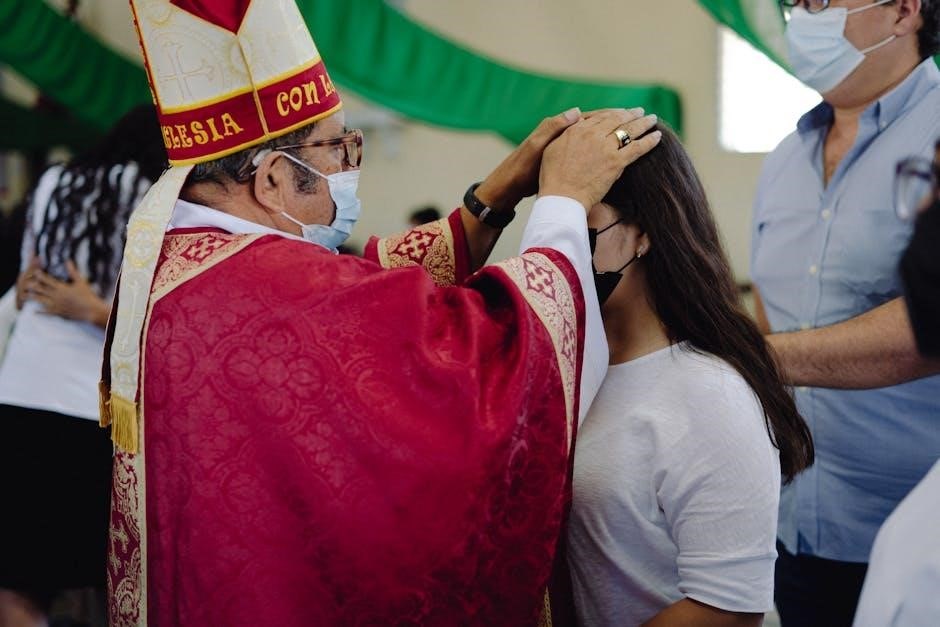
The Apostolic Pardon holds profound significance as a final act of divine mercy, offering forgiveness for sins and spiritual consolation to the dying. It is a powerful prayer imparted by a priest, granting remission of temporal punishment due to sin and reassuring the faithful of God’s infinite compassion. This sacred rite is a culmination of the Last Rites, providing solace to both the individual and their loved ones. By invoking the authority of the Church, the Apostolic Pardon strengthens the soul’s preparation for eternal life, emphasizing trust in God’s mercy and the hope of eternal salvation. It is a comforting reminder of Christ’s promise of forgiveness and eternal peace.
4.2 The Role of the Priest in Administering the Rites
The priest plays a central role in administering the Catholic Last Rites, serving as a spiritual guide and a vessel of divine mercy. They impart the sacraments of Confession, Anointing of the Sick, and Holy Communion, offering forgiveness, healing, and strength. The priest also grants the Apostolic Pardon, a final blessing that reinforces the soul’s preparation for eternal life. Through these rites, the priest provides comfort, reassurance, and spiritual support to the dying and their families. Their presence embodies Christ’s compassion and the Church’s commitment to accompanying the faithful in their final journey. The priest’s role is both sacramental and pastoral, ensuring the rites are performed with dignity and love, reflecting the Catholic Church’s profound respect for human life and its eternal destiny.
